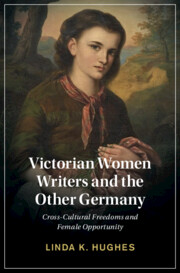This article maps out and evaluates the rise of ‘Deliberative Rights Theory’ (‘DRT’), a novel field of human rights analysis drawing on ideas from deliberative democracy. Deliberative democracy addresses dilemmas such as how deliberative and democratic inputs into public decision-making can each be influential, without either one dominating the other. This is especially apt for human rights, as settling complex and contentious rights cases (eg on COVID-19 vaccination, internet speech or assisted dying) calls for both technical deliberation and democratic input. There is an acute risk of noncompliance with – or even backlash against – rights decisions that lack either type of input. DRT’s normative strand of research explores conditions for uncoerced interactions between diverse participants in rights decision-making (eg ‘reasoned persuasion’, ‘epistemic diversity’ and ‘temporal deferral’). These conditions allow for an ‘integration’ of both deliberation and democracy in the course of decision-making about rights. This relatively nuanced and promising answer to the deliberation-democracy dilemma helps to account for DRT’s rising prominence. By contrast, ‘strategic’ approaches expect participants to leverage their status or power to push for outcomes they favour. The article contends that strategic approaches implicit in many existing rights theories cannot solve the deliberation-democracy dilemma, but rather allow one type of input (deliberative or democratic) or one type of institution (eg a court or legislature) to dominate. A further, institutionalist strand of research addresses how to realise DRT’s high normative ideals. The article suggests that court-focused rights models are frequently inadequate. Newer approaches, such as the mini-public model increasingly prominent in deliberative democracy, can best integrate democracy and deliberation for rights decision-making.

